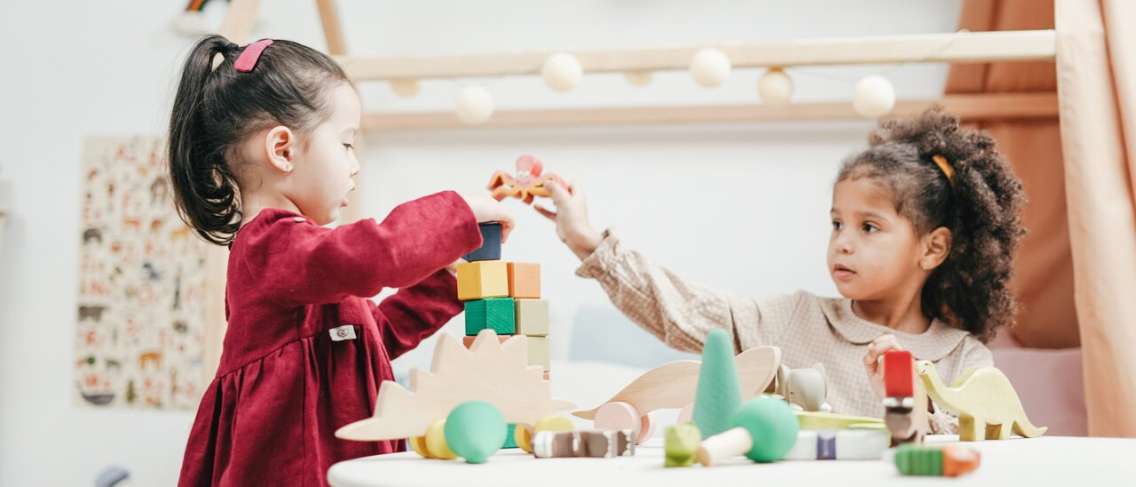Sharing with friends and neighbors is good. However, this noble attitude can backfire if it is taught to your little one in an inappropriate way, Mums. What is it, that generally happens? Come on, see the info here.
Don’t Do This, Mum
As the little one gets older, there is one science that must be understood by him, namely sharing. Children need study to share, so he can make friends, play cooperatively, take turns, negotiate, and deal with disappointments. Sharing also teaches children about compromise and justice. He learned that if he was willing to give a little to others, he could also get some of what he wanted.
That is why, sharing becomes an important part of supporting his social skills, and becomes even more important when he starts having friends to play with, being placed in daycare, or participating in activities in non-formal classes such as PAUD and kindergarten.
Well, most parents will feel uncomfortable or maybe embarrassed if their little one refuses to share toys with other children. This situation very often occurs while on the playground or during play sessions together. Then because they feel pressured by the situation, parents will automatically do various ways. The goal is noble, namely so that the little one wants to share. But in fact, this method is not entirely correct, you know, because it has a psychological impact on the little one.
What the heck, that error? Here are some of them:
When the child does not obey, parents often place themselves as superior to the child and show power by threatening the child. Like when your little one refuses to share, often threats are a surefire way to get children to obey. “If Adek doesn’t want to share, Mama will stay home later, you know.”, or “We don’t have to come here anymore, if Adek is hard to say.”
Often this method works. But instead of making your little one understand about sharing, he was only affected by the threat. In the long run, it can make children less likely to cooperate because they feel resentful of their parents. In other words, it erodes the close relationship you have with your little one.
- Manipulating your little one’s feelings
Driven by bad feelings, sometimes parents forget to ask their little one’s feelings. Finally, come up with sentences like, “Oh, I’m sorry, he’s sad because you don’t want to share toys,” or something like that. In fact, the feelings of the Little One are valid and need to be taken into account, you know. If this continues, it is not impossible that the little one will grow up with low self-confidence and feel that he is never enough for his parents and the surrounding environment.
- Forcing him to share
Well, this is what parents often do. Because “pushed” by social demands, Mums may force your little one to give up contested items or toys. In fact, forced sharing can actually teach your little one the wrong lessons, such as: crying out loud will help a person get what he wants, and parents have full power over who gets what and when he gets it. In addition, your little one will feel that he must always be ready to give what other people ask for without asking his opinion first. This method will often make your little one angry, cry, even to death tantrum.
Also read: Can Toddlers Drink Coffee? This is the answer
How to Teach Children to Share
Of course, children need opportunities to learn and practice sharing. Here are some ways to encourage sharing in everyday life:
Because sharing is an ability that needs to be practiced, then of course your little one can understand it if you get used to it from home. For example, your little one is an only child and he doesn’t have to share with siblings, Mums and Dads can still get used to sharing for things that need to be shared, such as televisions, dishes, or maybe cellphones. Slowly he understands, giving other people the opportunity to use his item or toy, does not mean he loses the item forever.
When you see your little one trying to share or take turns, give them praise and attention. Say that Mums see his efforts to share and he is getting smarter to do so.
Also read: Let’s try, Tips so that children like to eat fish
Your little one also has the right to decide what items or toys he wants to share or play with. So, before he invites him to family gatherings or takes his toys out in public, tell him that he can only bring toys that he wants to share. If not, then you should just leave the item/toy at home.
And the most basic step and should not be forgotten is to talk about it. How could he understand that sharing and taking turns was good, if no one had told him about it? Mums can take this slowly by saying that playing together is fun. So that it can be fun, then both he and all his friends will need to share with each other so they don’t fight and fight.
With the above method, there are two conditions that can be slowly corrected. If your child tends to like to snatch things or toys, he will learn that grabbing and wanting to win alone will make his peers not want to play with him. Meanwhile, if your little one tends to be a “victim”, he will learn the power of saying “no”. Over time, your little one will naturally become socially aware. Then gradually and with parental guidance, he will learn that life goes more smoothly. it’s smooth if you want to share. Good luck, Mums! (IS)
Also read: Mums, This is the Importance of Children Learning Maths Since Preschool Age!
Reference:
Raising Children. Kids Sharing
Smart Parenting. Teaching Kids to Play Fair
Ask Dr. Sears. Sharing
VeryWell Family. Forcing Kids to Share
–


